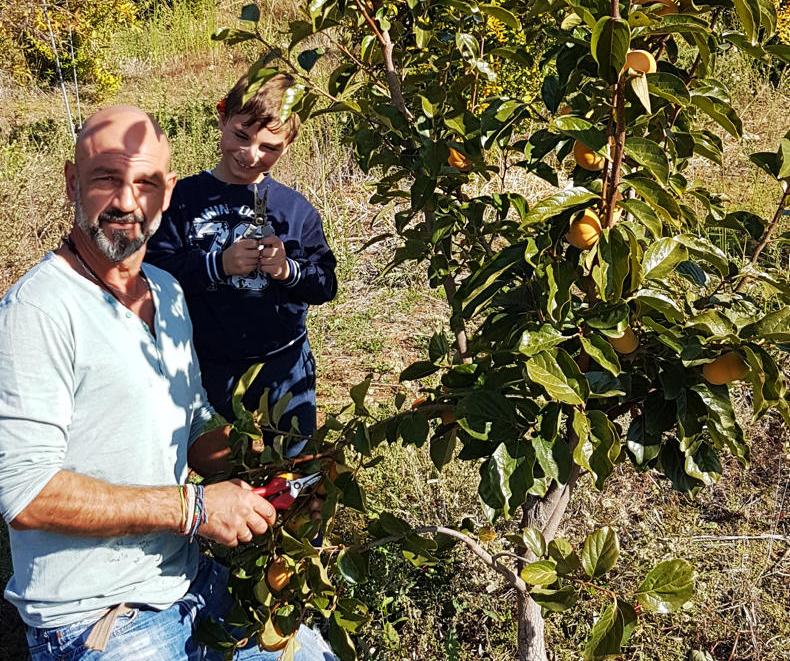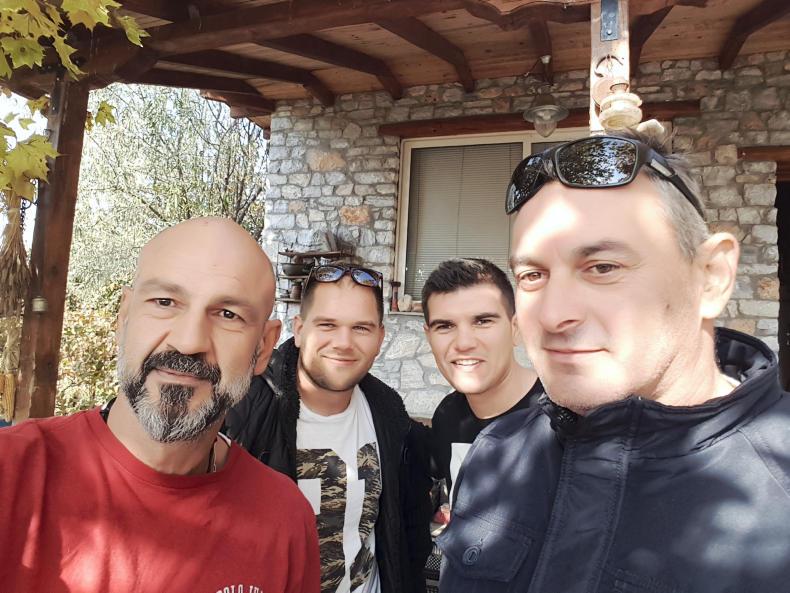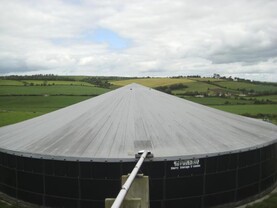Christos Godias stands in a field of wheat in northern Greece, where he farms 30ha of cereals and fruit. He is the leader of a farmers’ union and has played a central role in demonstrations staged against austerity measures over the past two years.
Today, as the austerity measures settle in, farmers are being sucked into the spiral of recession that has gripped the rest of the country since 2008.
“The new measures will turn us into a class of working poor. The hike in tax rate and social contributions are wiping out life in rural areas, farming is no longer a viable business and our survival is on the line. I have a turnover of €40,000 and earn an income of €20,000 once all costs for electricity, irrigation, rent of land are deducted. Income tax claims €5,000 and social insurance claims another €5,000.”
Up to 2014, farmers were a pampered constituency. Austerity came late and hit the agricultural sector hard. The new measures doubled farmers’ income tax to 26% while fuel subsidies were abolished. Social insurance contributions also rose to 27% of income. Before that, farmers used to pay no more than €1,100. The new measures sent costs skyrocketing, making Greek farmers among the most heavily taxed in Europe.
The government countered that the new social contribution measures would not burden the majority of farmers. But Christos Godias points out “larger farmers who have invested are being punished for working more”.
He fears the level of current measures will just end up shutting down thousands of rural businesses.
“The transitioning to higher payments should at the very least be much slower,” says Dimitris Bilalis Professor of Organic Agriculture at Athens University of Agriculture.
“We do not deny that farmers should pay taxes,” Godias readily admits “but the rise in taxes is making it impossible for us to continue farming.”
Moreover, going too far with raising taxes and social contributions may end up being a self-defeating measure. “If you force farmers to pay too much tax, you are opening the door to black market trade. Even the most law-abiding farmers will start buying and selling under the table in order to survive. It is an open secret that farmers in Northern Greece are selling to Romanian or Bulgarian wholesalers in return for cash. In the end farmers will pay less tax and the country will be worse off than without the measures, according to Godias.
Unlike other farm union leaders, Godias is not totally dismissive of the new measures. He says it was good that the reforms took part-time farmers out of the system.
A large part of the problem in Greece was that city farmers who owned small plots of land which they did not cultivate enjoyed large subsidies. Some put the number of part-timers who made a supplementary income out of farming while working city jobs as high as 150,000, or 25% of the total farming population.
Now that the income threshold that must be earned from farming for registering as a farmer is set at 51% of total income, this is changing. “This is a change we campaigned for and it is something the government should have done years ago. Part-timers should not benefit from CAP payments,” says Godias.
At the very least if the government imposes high taxes, farmers want to see an improvement in the services available to them, including sound technical advice on the ground. “I shouldn’t even have to ask for a system of agricultural improvement, it should be obvious that the state provides it. Instead it may sound strange but Greek farmers have no one to turn to when faced with problems in the field. The conditions we work in take us 50 years back,” says Godias.
This was not always the case. The system of agricultural improvement used to function, but decades of under-funding led to its dilapidation. “Ultimately I turn to the internet to identify the causes of problems and work out possible solutions. Alternatively, I may pay for advice by a private agronomist or consult the owner of the local store of agricultural supplies,” Godias adds.
But learning on the job by trial and error leads to farmers wasting capital and time. “Ten years ago I planted 8ha of pomegranate trees. Now I know that this was a mistake – this tree crop is not suited to Northern Greece. Had I known I would have planted only 2ha of pomegranates but I did not have the right technical advice to enable me to make a more informed decision,” Godias says.
“I have one to two meetings a week with other farmers to advise them on whether taking up pomegranates is a sound choice. Hundreds of farmers today rely on this informal network of advice, relying on professional solidarity,” he points out.
Godias often gets phone calls from fellow farmers letting him know that they are willing to take to the street. “Staging more protests is not an option in my view. What is the point of parking our tractors in major highways? Everybody makes less in today’s Greece, why should we block highways and stop others from making meagre earnings? It makes no sense.”






 This is a subscriber-only article
This is a subscriber-only article











SHARING OPTIONS: